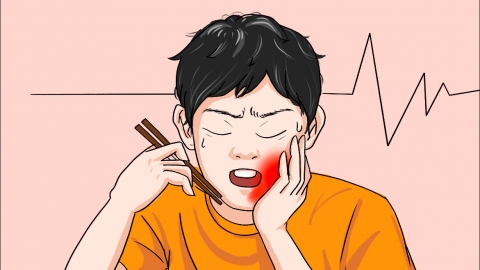Will a 6-year-old child's decayed permanent molar be replaced by another tooth?
For a 6-year-old child, if the large tooth is a primary molar, it will usually be replaced naturally; however, if it is a newly erupted "first permanent molar" (permanent tooth), also known as the "six-year molar," it will not be replaced and requires specific care. It is recommended to visit a hospital promptly for appropriate examinations to determine the dental condition and follow medical advice for proper management.

At age 6, children have four primary molars in their mouths—located one on each side of the upper and lower jaws—classified as baby teeth, which are typically replaced by permanent teeth between ages 9 and 12. Even if these primary molars develop cavities, they will naturally fall out when the permanent teeth erupt, provided the decay has not severely damaged the root or affected the developing permanent tooth bud. However, cavities still require treatment to prevent pain or infection that could interfere with eating and the normal eruption of permanent teeth.
Around age 6, a new permanent tooth emerges behind the primary molars—the "six-year molar." This tooth is a cornerstone of the permanent dentition and will not be replaced throughout life. If this tooth develops decay, prompt dental treatment is essential. Delayed treatment may lead to pulpitis or apical periodontitis, requiring fillings or crowns later on, as it cannot be restored through natural tooth replacement.
Routinely assist children in brushing their teeth twice daily (morning and night) with fluoride toothpaste formulated for children, for two minutes each time, and rinse after meals. Limit sugary food intake and schedule dental check-ups every 3–6 months to detect and treat cavities early, thereby protecting both primary and permanent teeth.




